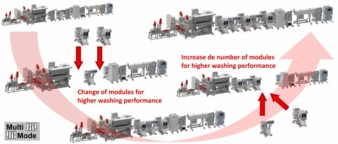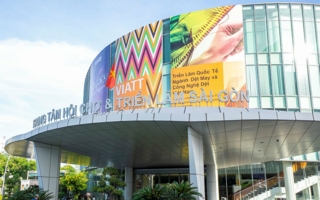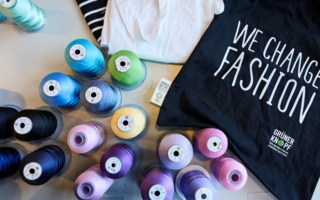16/08/2024 – Research 4.0 solution — auf Deutsch lesen
A flexible platform to create sustainable textiles
Research 4.0 applies Industry 4.0 principles to research facilities, enhancing transparency and traceability. Dienes’ MultiMode approach meets these demands.
The global demand for textile fibres nearly doubled from 2000 to 2020, with man-made fibres like polyester significantly contributing to this growth. However, recycling remains a challenge due to embedded undesired substances, mixed materials, and high recycling costs.
Technical textiles, valued for their performance and functional properties, make up about 35% of global fibre production. Their consumption is expected to increase by 60% by 2032, necessitating sustainable consumption and production models in the garment and technical textile industries.
Recycling through advanced technologies
Recycling of textile products aims to restore value with minimal environmental impact. Technical textiles, often reaching end-of-life due to damage, should be recycled when no longer suitable for reuse. Four main recycling technologies are available:
1. Mechanical recycling: Breaking down textiles into fibres for new structures.
2. Chemical recycling of cellulose-based products (e.g., cotton, viscose) into new fibres.
3. Thermo-mechanical recycling: Melting synthetic polymers for re-spinning.
4. Chemical recycling of synthetic polymers into monomers.
From development to production
Biobased fibres are emerging as sustainable alternatives to polymers like polyester and nylon. This shift includes recycling approaches and the use of materials like Man-Made Cellulosic Fibres (MMCFs). However, cellulosic and recycled fibre products face challenges like varying feedstock quality and the need for consistent performance, requiring ongoing technological development.
Research in this field involves:
1. Integration of production modules.
2. Scalability: Replacing modules with modified specifications.
3. Flexibility: Modifying production steps’ positioning.
4. High performance: Synchronised intelligent production modules.
5. Analytics: Continuous process monitoring and evaluation.
Research 4.0 applies Industry 4.0 principles to research facilities, enhancing transparency and traceability. Dienes’ MultiMode approach meets these demands with adaptable, decentralised control modules, facilitating innovative sustainable textile product development from lab trials to industrial-scale production.




